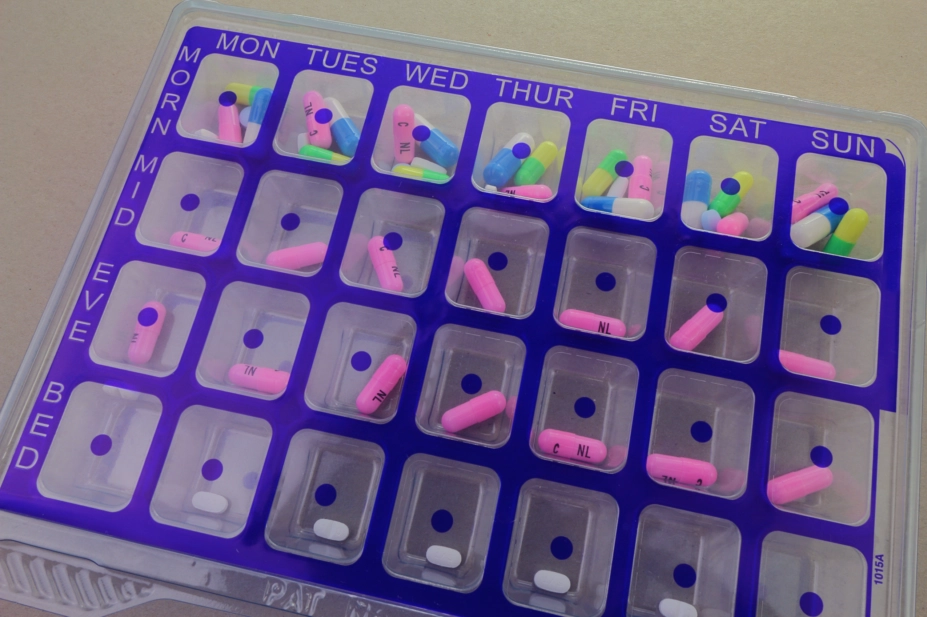
Shutterstock.com
Researchers have developed a decision tool to ensure that multi-compartment compliance aids (MCAs) are given only to those patients who will benefit from them.
The team developed the ‘Medication Adherence Support Decision Aid’ (MASDA) after their own research revealed that the provision of MCAs by pharmacies in England had more than doubled in the past ten years.
MCAs, such as dosette boxes, are used to support people who might find it difficult to adhere to their medicines.
The researchers, from the University of East Anglia (UEA), hope the MASDA — which encourages prescribers to consider the barriers that might affect a patient’s medicines adherence — will help pharmacists and other prescribers to decide who would benefit from MCAs and what other methods they could use to improve adherence.
Their study, which was published on 27 July 2019, surveyed staff from 80 community pharmacies across England and led the authors to estimate that more than 270,000 MCAs were being filled by community pharmacies in England per year. This works out as a median of 20 MCAs per pharmacy, per month, provided for patients living in their own home, more than double the estimated annual figure of 100,000 calculated in 2001.
Just over half (51.3%) of those surveyed said the pharmacist or GP’s professional judgement was the most influential factor for patients using an MCA.
Only 16.3% of those surveyed said that the patient’s opinion influenced decision making. Most respondents said the decision was either never or rarely affected by the risk of adverse events (74.2%) or reduced patient autonomy (53.5%) arising from an MCA.
The research team concluded that there was “an urgent need” to develop an assessment tool to guide safe and appropriate MCA initiation.
Debi Bhattacharya, a senior lecturer in health services research at UEA’s School of Pharmacy and lead researcher on the study, said the research found that patients were more likely to become unwell when they switched to using an MCA, which she suggested was because of increased side effects resulting from patients moving from potentially sporadic adherence to taking all their prescribed medicines.
She added that when medicines are left in their original packaging, patients can easily choose if they want to miss one out, whereas using an MCA means they may not be able to identify the medicine they wish to miss out so could choose not to take any of them, which can lead to health complications.
“Our new [MASDA] algorithm encourages prescribers to consider the emotional and practical barriers that might stop patients taking their medication correctly,” said Bhattacharya.
“Emotional barriers to taking medication as prescribed can include things like whether the patient is anxious or lacking confidence, lacking motivation, or experiencing unwanted side effects. In all of these cases, using a pill organiser is likely to be inappropriate.
The MASDA has been endorsed by the Royal Pharmaceutical Society (RPS) and the Royal College of Physicians and the research team hopes that it will be adopted by the NHS.
Wing Tang, head of professional standards at the RPS, commented: “This tool will further help to implement recommendations we’ve made in our 2013 guidance which aims to improve patient outcomes through the better use of compliance aids.”
Lelly Oboh, a consultant pharmacist for older people at Guy’s and St Thomas’ Hospital and the NHS Specialist Pharmacy Service, said the tool could help pharmacists and other prescribers to be more aware of issues when a patient is non-adherent before “jumping” onto an MCA.
However, Oboh added that the algorithm could potentially oversimplify what she described as “a complex issue”.
Published in February 2019, data obtained by The Pharmaceutical Journal under the Freedom of Information Act revealed that 507 patient safety incidents involving the terms ‘monitored dosage’ or ‘dosette box’ had been reported to England’s National Reporting and Learning System in the first half of 2018.
The data also revealed a steady increase in incident reports in the past few years, from 603 reports in 2016 to 972 reports in 2017.


